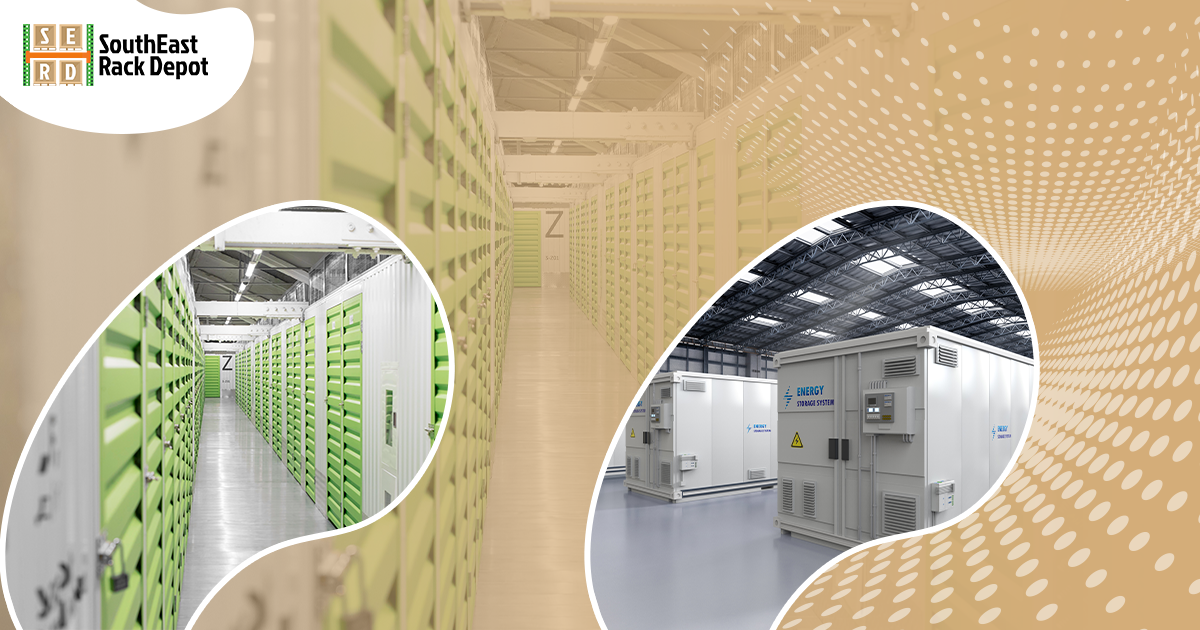


Climate-Controlled Warehouse: Tips and Considerations
Designing a climate-controlled warehouse involves careful planning and consideration of various factors to ensure that the storage environment meets the specific temperature and humidity requirements of the goods stored within. Climate-controlled warehouses ensure optimal conditions, preserving the quality and integrity of stored goods and protecting them against environmental changes. Here are some tips and considerations for a climate-controlled warehouse design:
- Understand product requirements: Different products have different temperature and humidity requirements. Understand the specific needs of inventory preservation in the warehouse.
- Temperature control: Invest in a reliable HVAC (heating, ventilation, and air conditioning) system to regulate temperature. Temperature-controlled storage ensures that the system can maintain the required temperature levels consistently.
- Humidity control: Depending on the products, humidity control may be crucial. Consider installing dehumidifiers or humidifiers to maintain the required humidity levels.
- Insulation: Proper insulation is essential to prevent external weather conditions from affecting the interior climate. Choose high-quality insulation materials to minimize heat transfer.
- Air circulation: Ensure good air circulation to distribute the conditioned air evenly. This prevents hot or cold spots within the warehouse.
- Energy efficiency: Select HVAC systems that use less energy to save money on maintenance. Consider technologies such as programmable thermostats, energy recovery ventilation, and LED lighting.
- Monitoring systems: Implement a robust monitoring system for temperature and humidity. Automated systems can provide real-time data and alerts for any deviations from the set conditions.
- Emergency backup systems: Install backup power systems to ensure continuous operation during power outages. This is crucial to prevent temperature fluctuations that can damage sensitive products.
- Regulatory compliance: Be aware of and comply with local regulations and industry standards for climate-controlled storage facilities. This may include building codes, fire safety measures, and environmental regulations.
- Consult with experts: Work with architects, engineers, and HVAC specialists experienced in designing climate-controlled warehouses. Their expertise can help you navigate the complexities of creating an optimal environment.
Industries that Benefit Most from Climate-Controlled Storage.
Climate-controlled storage is essential for industries that deal with products or materials sensitive to temperature and humidity variations. Here are some benefits of climate-controlled storage in some industries:
- Pharmaceuticals and biotechnology: Pharmaceuticals, vaccines, and biotechnological products often require strict temperature control to maintain their efficacy. Climate-controlled storage helps prevent degradation and ensures product integrity.
- Food and beverage: Perishable foods, wines, and certain beverages require specific temperature and humidity conditions to prevent spoilage, mold, and flavor changes. Climate-controlled storage is essential for maintaining the quality and safety of these products.
- Healthcare and medical supplies: Medical equipment, devices, and supplies can be sensitive to temperature fluctuations. Climate-controlled storage ensures that these items remain in optimal condition until they are needed.
- Agricultural products: Certain crops, seeds, and agricultural products may require controlled storage conditions to maintain quality. Climate control can help prevent spoilage, insect infestations, and other issues.
- Chemicals and hazardous materials: Some chemicals and hazardous materials have specific storage requirements to ensure safety and stability. Climate-controlled storage can help regulate temperature and prevent reactions or degradation.
- Wine and spirits: Fine wines and spirits require specific storage conditions to age properly and maintain their flavor profiles. Climate-controlled storage is common in wine cellars and warehouses.
- Research and development: Companies involved in research and development may have specialized equipment, prototypes, or experimental materials that require controlled storage conditions to ensure accurate results.
Not Sure about what you need?
Contact a pro- Recent Posts
- Popular Posts
- Drive-In Pallet Rack Systems for Georgia Warehouses
- Heavy Duty Racks: Durable, High-Capacity Industrial Storage
- Warehouse Racking Solutions in Atlanta, GA That Boost Efficiency and Maximize Space
- Why Professional Warehouse Consultation Is Essential for Scaling Your Business?
- Warehouse Installation and Relocation: A Step-by-Step Guide for a Seamless Transition.
- Warehouse Racking Solutions in Atlanta, GA That Boost Efficiency and Maximize Space
- Drive-In Pallet Rack Systems for Georgia Warehouses
- The Unmatched Versatility of Cantilever Racks for Industrial Storage.
- Why Professional Warehouse Consultation Is Essential for Scaling Your Business?
- Heavy Duty Racks: Durable, High-Capacity Industrial Storage



